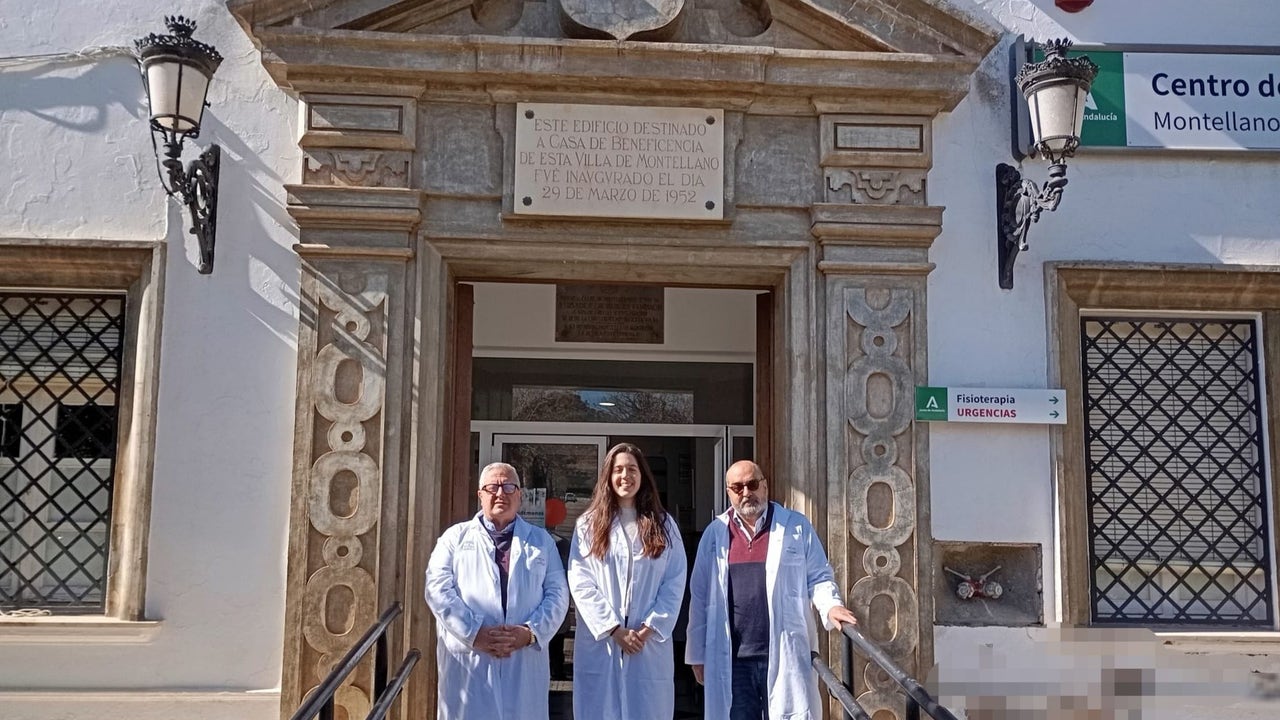Since the Montellano Health Center (belonging to the Southern Health Management Region of Seville) was accredited to provide training in rural medicine in 2019, it has trained fifty Internal Resident Doctors (MIRs). Its peculiarity is the reputation it has acquired over these five years with the consolidation of its teaching quality, becoming one of the most sought-after centers and growing with the inclusion of nursing rotations for training in rural areas.
Rural medicine, integrated into the specialty of family and community medicine, is its own and distinct discipline. Its professionals preserve and maintain the essential characteristics of the expertise of family and community medicine: continuous comprehensive care and attention to the family and community with transversal competencies and a state of separation. Their training takes place during the third year of residency of future specialists. These specialties are carried out in health centers or primary care centers in rural areas, with a one-month rotation. In the case of Montellano, and according to Ana Gutiérrez, one of its current residents: “It is a center that combines these requirements with teaching qualities that enrich us at a professional and personal level and justifies the excellent reputation we have earned among MIRs.”
The Montellano Health Team is led by nurse Antonio Román and covers the cities of Montellano and Corippe. Both are 15 kilometers apart and are located in the southern region of the province of Seville, bordering the province of Cádiz. The first with a health center and the second with a clinic serve a population of 8,300 residents. It has a staff of 24 professionals: family doctors, pediatricians, nurses, midwives, nursing assistants, nurse case managers, social workers, physiotherapists, administrative assistants, orderlies-ambulance drivers. Montellano has a wide portfolio of services that covers all processes, comprehensive plans and primary care programs of Andalusian healthcare. This is the case of minor surgeries, family planning, maternal education, healthy child programs, teledermatology, telecontinuity of care, smoking cessation, care of patients on oral anticoagulant therapy, heel testing, electrocardiogram, spirometry, retinography, cytology and ear washing. To complement this, the center also offers a number of health education and promotion workshops for users, as well as an extensive civic engagement program. Likewise, it has an emergency service, responsible for attending to non-urgent emergencies 24 hours a day, which has guards and exit gates with mobile ICUs. Precisely its position as a rural area and particular remoteness, 70 kilometers from the Valme University Hospital in Seville (reference centre), provides this center with the characteristics of rural medicine: emergency situations with transfers and emergencies. More potential for solutions. Its director gives examples: rescue situations caused by accidents or traffic accidents in the Sierra de Montellano on the take-off runway for paraglider and gliding flights, since it is a passage area to the beach. This creates conditions for a different organizational model in consultation activity, home activity in an area with a very elderly and dependent population, close relationships between medical and nursing staff, as well as the strength of teamwork to overcome the difficulties that may arise. Geographic dispersion and remoteness of specific resources.
Montellano organizes, teaches and trains the rotational training of third-year family and community medicine resident doctors on rural medicine, which is an essential content in their specialization. There are four teachers in this center for proper development of teaching programme. According to its director, during the rotation the supervised resident practices the theoretical and practical skills necessary to participate in on-demand, scheduled and urgent consultations both in the health center and at home. Therefore, “rural training provides broader knowledge of medicine and, as an advantage, produces closer relationships between the doctor, the patient, the family and the community environment.” Specifically, Montellano provides training to residents: comprehensive training in minor surgery, infiltration and cryotherapy; Rescue and emergency in mountain areas; Care management of a Type C ambulance, which, due to its characteristics, can only be used with health personnel and the activity of workshops in the field and the programming of sessions with everything related to community training.
And, similarly, Among the teaching materials, Rural rotations train residents in the following skills: communication, geriatrics, oncological and non-oncological palliative treatment, pediatrics, mental health, family care, community-oriented primary care, detection of social problems, with oral anticoagulation therapy. With emergencies and emergencies.
José María Lora, doctor and one of the tutors of these residents, who has been carrying out these teaching tasks in rural medicine in this center since its recognition, with personal satisfaction as a transmitter of knowledge and an emergency point of special specialties attach importance to. And will be taken to the hospital center for complete training.
For her part, Mª Victoria Rodríguez, Coordinator of Resident Family Doctors of the Southern Health Management Region of Seville, highlights that: “Centers like Montellano offer the possibility of a more holistic and community-based approach than offered by most Are.” Time. For medicine in the urban environment, it has become the area where the fundamental and differentiating characteristics typical of family and community medicine are best maintained.
As for the residents, they agree that both the training they receive in knowledge and skills as well as the teaching approach of the team of tutors they have as excellent: “They reinforce our professional spirit towards the medical specialty “They have chosen to show us a very human side of what we do, both teaching and helping.”

